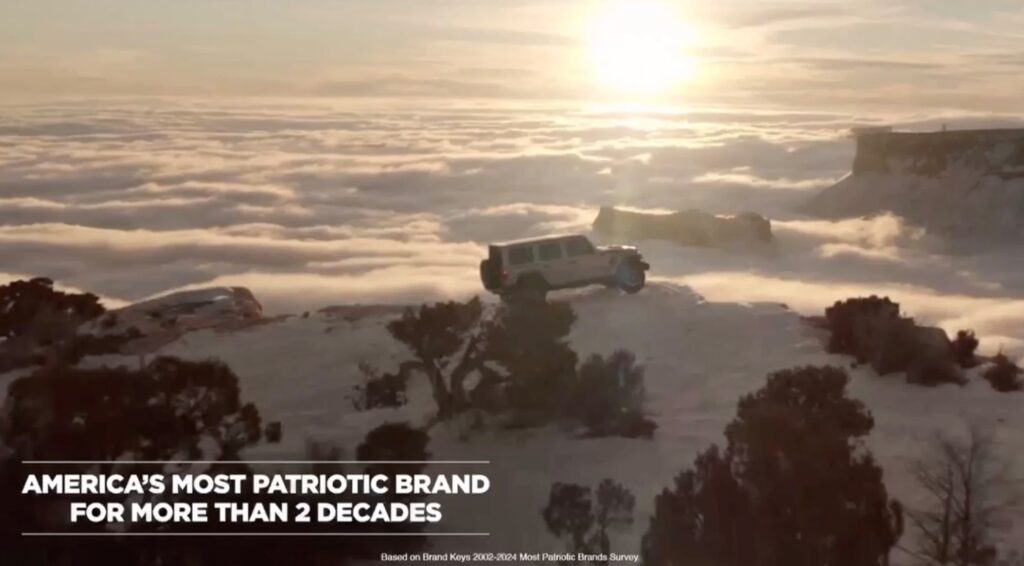- Stellantis has been forced to pull a series of adverts claiming its vehicles are ‘built’ in the US.
- Truth in Advertising argued the ads concealed the fact that many build parts are imported.
- The ads have been withdrawn so they can be modified to better reflect the true build status.
In an era when “Made in America” claims are under sharper scrutiny than ever, automakers boasting about their domestic roots might want to double-check the fine print. Only days after Donald Trump’s top trade adviser, Peter Navarro, got publicly dunked on by Elon Musk for calling Tesla a mere car “assembler,” Stellantis is now walking back its own red-white-and-blue rhetoric.
Several of its ads have been pulled following scrutiny over whether its vehicles are quite as American as advertised. Dodge, Ram and Jeep all launched adverts last weekend bragging about their US heritage, a topical theme due to the 25 percent tariff President Trump has placed on imported cars and auto parts.
Related: The Most American-Made Cars Least Affected By Trump’s Sweeping Tariffs
Jeep’s promo reminded us of its hero role in WWII and claimed the company was “America’s most patriotic brand,” and Dodge assured us its cars are built in America. Ram went one further, asserting that its trucks are “built from the ground up in America.”
Many Americans might not have questioned those claims, but Truth in Advertising wasn’t so content to let them slide. The independent watchdog wrote to Stellantis on Tuesday morning arguing that its vehicles aren’t actually “American-made” according to terms laid out by the Federal Trade Commission.
The FTC requires any car that claims to be “made” or “built” in the US to contain “no – or negligible – foreign content,” Truth in Advertising explains. And no Jeep, Dodge or Ram vehicle meets that criteria. Even Tesla’s Model 3, the most American-made car by content, contains 12.5 percent imported parts.

Stellantis’s American-made vehicles are more accurately American-assembled, the watchdog argues, using parts shipped in from countries across the globe. While many components are sourced in the US, others might come from Mexico, Canada, Asia or Europe.
“Stellantis has every right to boast of its brands’ assembly plants in the United States that create American jobs and strengthen the US economy, but it cannot illegally embellish the amount of manufacturing that takes place domestically,” Truth in Advertising wrote in its letter to the automaker.
“Such deception is especially harmful when, as here, it is disseminated during a particularly vulnerable time for US consumers shopping for cars.”
TIA’s letter dropped into Stellantis’s mailbox on Tuesday morning and by that afternoon the YouTube ads had been taken down so they can be modified to make the vehicles’ origins clearer, though the original commercials were still being aired on TV the following day.




